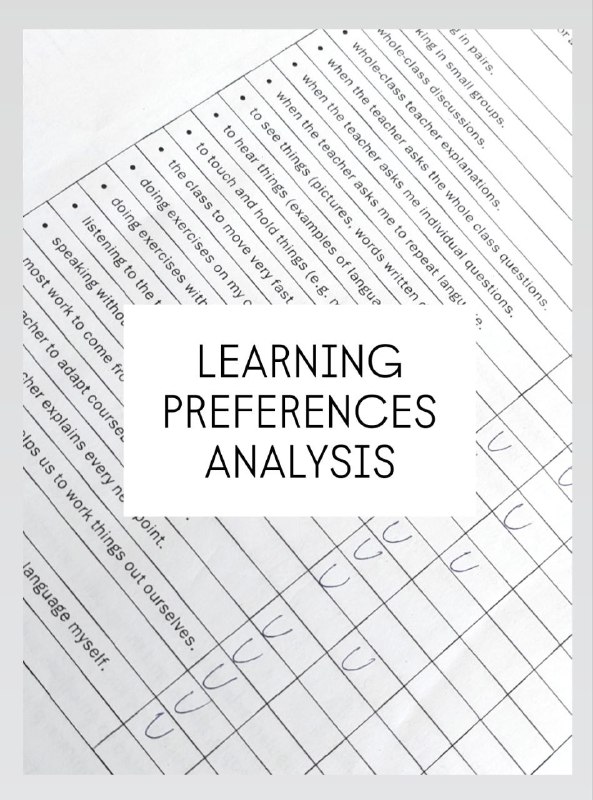group-telegram.com/random_musing_s/375
Last Update:
I don’t have any new groups this year, but I do have some amazing teen students that I have never taught before. And I need to get down to the bottom of what kind of people they are.
I had to wait (with all those tests I’ve ranted about here https://www.group-telegram.com/it/random_musing_s.com/372), but the first thing I did as soon as we started actual lessons was Learning Preferences Analysis.
It’s not the same as Learning Styles Analysis. Most of us are aware of the fact that the myth about Learning Styles has been debunked for a while now. There is no, and never has been any concrete evidence that Learning Styles exist. Cedar Riener and Daniel Willingham emphasized in their paper that while students may have preferences, there is no evidence that catering to these preferences enhances learning outcomes (https://fee.org/articles/learning-styles-don-t-actually-exist-studies-show/)
But I’ve gone off-track (
Either way, me inquiring about my students’ preferences is not just about trying to adjust my teaching. I do it for two main reasons:
1. Expectations.
I work with teenagers, and they are quite unpredictable. People are all unpredictable really, but in my experience, adolescents are doubly so. Therefore, I ask them for their preferences to find out what I might be expecting of them.
2. Rapport.
We all like being listened to. I might even go as far as to claim that understanding that their opinion matters is essential for teens. Their parents think they are babies, but expect them to act mature. Teenagers, themselves, feel grown up (and they definitely are, especially compared to their earlier experience!), but are not allowed much freedom (for pretty solid reasons). They are stuck in some kind of limbo so being asked and listened to, feeling genuinely (that’s important, you need to be sincere, they smell dishonesty like sharks do blood) acknowledged is a huge step to gaining their trust and respect.
So, with this post I encourage you to ask your teen students about their preferences, evaluate their answer as a grown-up and behave accordingly.
If you want me to share the form of Learning Preferences Analysis I used, please do let me know.
#teaching_teens #rapport #lesson_ideas
BY A Random EFL Teacher Muses

Share with your friend now:
group-telegram.com/random_musing_s/375
